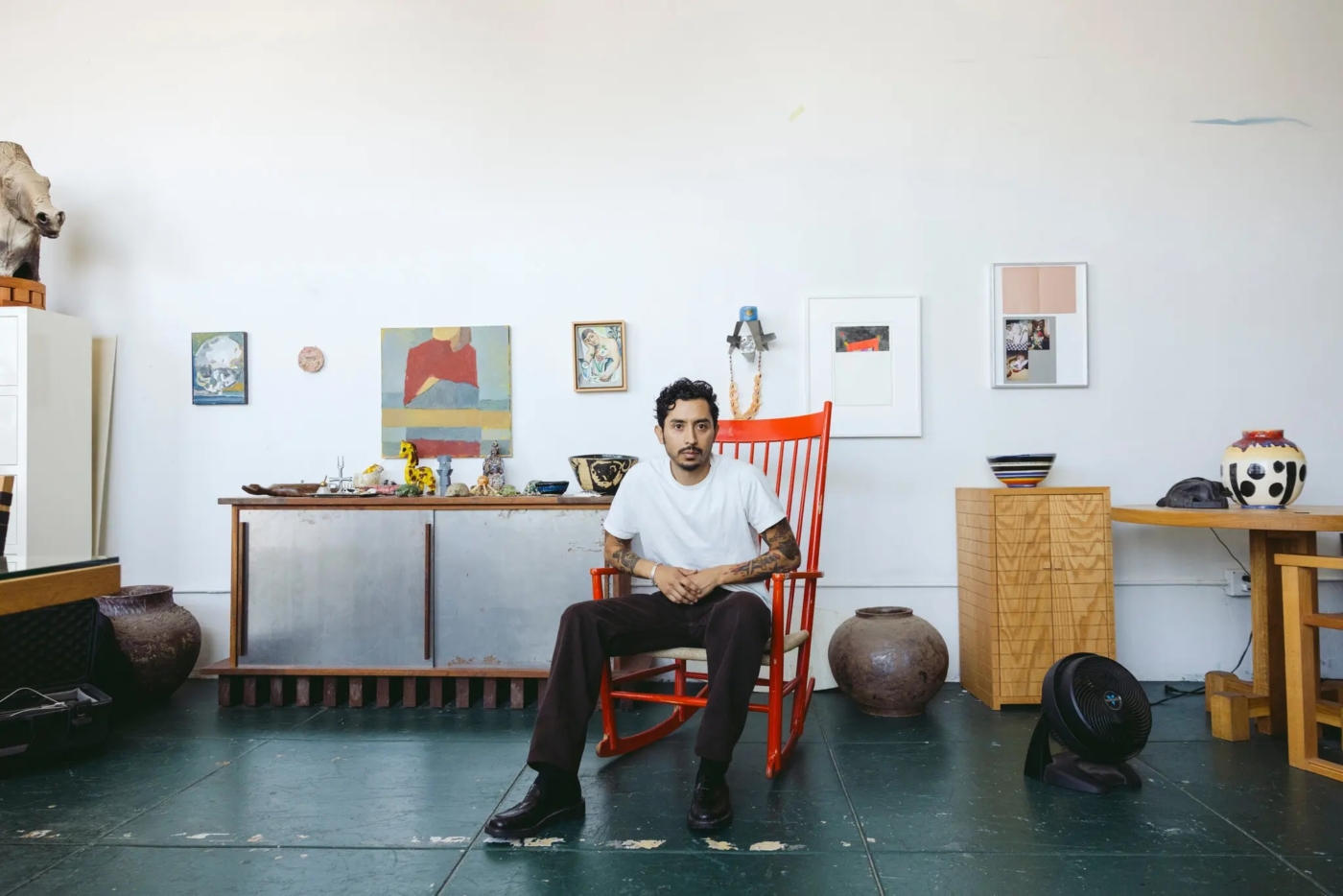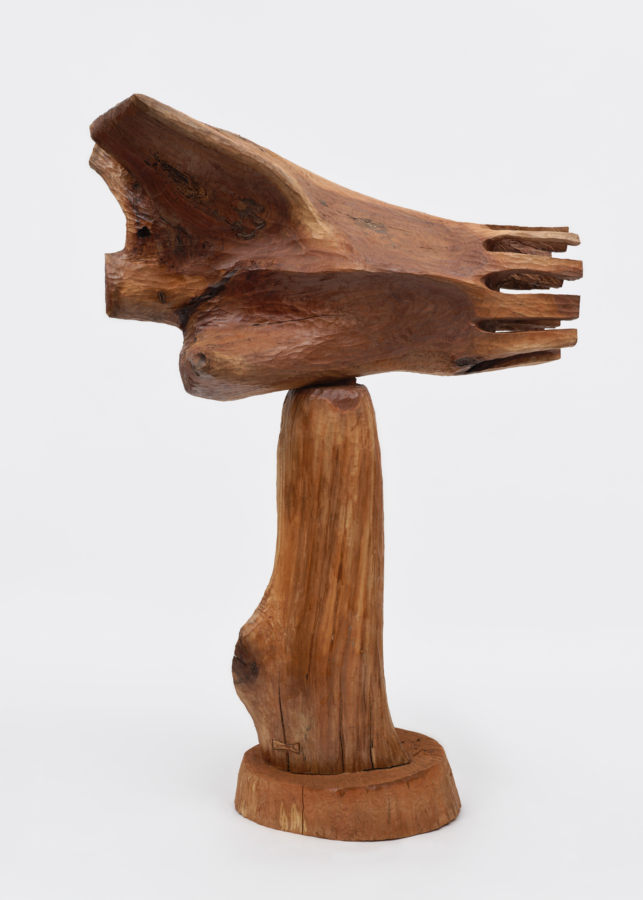
September 19, 2024
Download as PDF
View on T: The New York Times Style Magazine
Other people might see the work of the Los Angeles-based artist and designer Ryan Preciado, 34, as cabinets or tables, but he thinks of them, he says, as “portraits,” each containing a “bat signal” meant to speak directly to important people in his life. The inverted-triangle shape of his aluminum Ira shelving unit, for example, was inspired by a photo of his mother (for whom it’s named) stretching out her arms while roller-skating. Similarly, a new series of bronze sculptures cast from tools is a homage to the owner of Preciado’s favorite local hardware store.
Preciado, who is of Mexican American and Chumash descent, grew up in Nipomo, a small town in Southern California. Passionate about skateboarding, cars and design, he also attended powwows with his grandmother, who ran a Chumash culture center. After apprenticing with a furniture maker in nearby San Luis Obispo, he moved to Los Angeles, where, soon after his arrival, he wandered into the influential ceramics gallery and store South Willard. Its co-founder Ryan Conder took on Preciado as a protégé and introduced him to Peter Shire, a member of the 1980s Memphis design collective. Preciado served as Shire’s off-and-on assistant for four years, and today his work shares his mentor’s sense of color and whimsy. His Nipomo upholstered sofa and chairs, for example, evoke Shire’s signature silhouettes with their half-moon-shaped backrests — though Preciado says the pieces were actually inspired by memories of playing in his grandmother’s garden.
This month, Preciado has a solo show at Karma Gallery in New York, where he has installed, among other pieces, a burgundy lacquered daybed with a playful, blocky shape that was informed by a peculiar parking structure he admires in the Los Angeles neighborhood of Echo Park. In October, he’ll have his first solo museum show — “So Near, So Far” — at the Palm Springs Art Museum, where his pieces will be presented in dialogue with the work of Manuel Sandoval, the midcentury Nicaraguan American woodworker and architect who created interiors and furniture for Frank Lloyd Wright and Rudolf Schindler but never received credit for doing so. Uncovering and celebrating “lost labor,” Preciado says, is a motivating factor. “I’m not making art from a strictly political point of view, but I’m navigating the world as a brown man,” he says. “It’s coming from a purely emotional point for me.”



